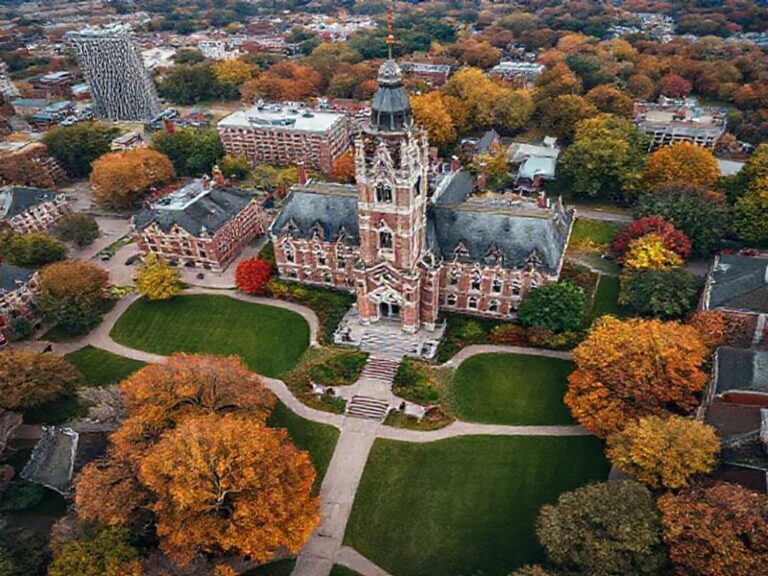Oxford Beats Cambridge Again: UK University Rankings Prove Tradition Sells at a Premium the World Keeps Paying
Oxford Still Beats Cambridge, Earth Still Orbits Sun: 2025 Global Rankings Confirm British Universities Are Expensive, Excellent, and Slightly Alarmed
by L. V. Merriweather, International Affairs Correspondent
LONDON—The annual scholastic beauty pageant known as the QS World University Rankings sashayed down the runway this week, and British institutions once again collected tiaras like a kleptocratic monarch on a clearance sale. Oxford clung to third place globally (behind MIT and Imperial, which is basically Oxford with better Wi-Fi and fewer quills), while Cambridge sulked in fifth, still wondering how it lost to its older sibling in the only contest that truly matters: bragging rights at G-20 cocktail parties.
For the international observer—say, a debt-laden student in Lagos or a hedge-fund analyst in Singapore eyeing a mid-career “purpose pivot”—these rankings are less a dispassionate metric than a geopolitical mood ring. When British universities rise, sterling strengthens; when they dip, the pound gulps like a gin and tonic spilled on a Persian rug. This year the ring glowed a reassuring sapphire: every Russell Group member crept upward, a collective shrug at Brexit, the pandemic, and the fact that most campus libraries now resemble co-working spaces for influencer start-ups.
To the rest of the planet, the UK’s academic hegemony is both comfort and menace. Comfort, because the English language remains the lingua franca of aspiration; menace, because aspiration now costs £27,000 in tuition alone, a sum roughly equivalent to the GDP of a small Pacific atoll. A record 44 percent of this year’s freshers are non-EU internationals, lured by post-study work visas and the promise of acquiring a British accent that sounds both trustworthy and slightly apologetic. Their fees subsidize the locals, who in turn subsidize the pub economy. It’s trickle-down economics wearing a mortarboard and holding a lukewarm ale.
Meanwhile, China’s Tsinghua and Peking hover at 14th and 15th, close enough to smell the clotted cream. The Communist Party, never shy about a metric it can weaponize, has instructed its flagship universities to “overtake the West by 2030.” Translation: expect a new library shaped like a semiconductor and a mandatory course on Xi Jinping Thought cleverly disguised as Comparative Philosophy. The subtext is not lost on British deans, who have begun sprinkling Mandarin phrases into fundraising emails like MSG in a takeaway curry.
Across the Atlantic, the Ivy League—those venerable hedge funds with libraries—also watched the rankings with the detached boredom of aristocrats at a regatta. Harvard slipped to fourth, a position Americans treat as mildly embarrassing, like forgetting to tip the caddy. Yet even they know that global prestige is a zero-sum sport: every Chinese grant landed by UCL is one less endowment check from a plutocrat who wants his surname on a nano-fabrication lab.
Back in Blighty, the government’s response has been characteristically Shakespearean: part hubris, part comic relief. The Department for Education hailed the results as proof that “Global Britain” still punches above its weight, conveniently ignoring that the weight class is increasingly determined by tuition-paying students from Mumbai, Nairobi, and Jakarta. Last month a minister suggested reclassifying student visas as “exports,” thereby turning debt into national product. It’s the sort of accounting that would make Enron blush.
And what of the students themselves, those fragile vessels of caffeine and anxiety? They queue outside visa centers at dawn, clutching acceptance letters like indulgences. They arrive to find lectures on Zoom because the faculty are on strike over pensions that evaporated faster than a crypto portfolio. They graduate into an economy where a starting salary barely covers the interest on their loan, but at least the parchment is embossed with Gothic script that looks fabulous on Instagram.
In the end, the rankings certify what we already know: Britain sells tradition at a premium, the world buys it in installments, and somewhere in Singapore a 17-year-old is refreshing her inbox, praying for a conditional offer that will validate her entire existence. If she gets in, she’ll join a centuries-old conveyor belt of ambition that begins with Latin grace before dinner and ends with LinkedIn updates no one reads.
The sun never sets on the British university brand; it just sends the bill at dusk.







